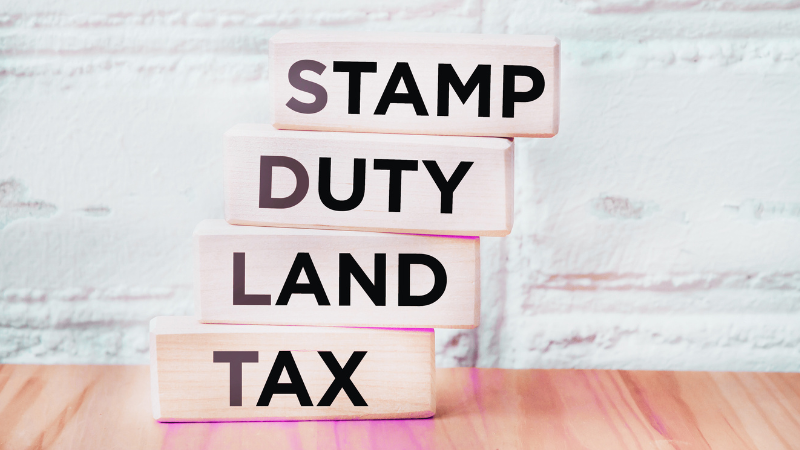Portfolio mortgages are a relatively new type of financial product designed to streamline landlord finances.
Multiple recent, and additional forthcoming tax legislation changes have resulted in reduced tax reliefs available for landlords to claim, and therefore many sole trader landlords are considering changing their business profile to a limited company and researching portfolio mortgages.
This guide will explore the purpose of portfolio mortgages as well as common application criteria and benefits of this type of finance.
What is a Portfolio Mortgage?
Portfolio mortgages have been designed to simplify the finances of landlords by pooling all of their buy to let mortgages under one financial product.
Portfolio mortgages act as one single account managed by one lender and therefore have one monthly payment. The benefits enable simplified cash flow management, as all mortgage payments are consolidated, but also could reduce banking and transaction fees.
Most lenders will have their own definition of a property portfolio holder, however, generally, the term is associated with landlords that let out a minimum of four properties.
Portfolio mortgages are suitable for landlords who have registered as a limited company.
Related reading?
- Repayments on £80,000 mortgage.
- Interest-only mortgages.
- Zero deposit mortgage.
- The first mortgage explained.
- What stops you getting a mortgage in the UK?
What are typical Portfolio Mortgage rates?
As lenders take on more risk by mortgaging an increased number of properties, the mortgage interest rates tend to be higher than those offered by traditional methods. Also, lenders take the consideration that if a limited company owning a property portfolio goes bust, lenders often find it very difficult to recover the debts.
Although, saying that, as portfolio mortgages become more common, the interest rates offered will become more competitive.
Portfolio mortgage interest rates are calculated by reviewing the existing rates across the entire portfolio.
For example, with a traditional buy-to-let mortgage, each property would have its own interest rate, but these would generally be averaged with a portfolio mortgage.
In addition to the minimum four properties within a portfolio, lenders will often require other criteria to be met such as requiring the portfolio to have a minimum of £500,000 worth of value.
The rental income generated from the portfolio is usually required to be between 120% and 140% of the loan repayments also.
Advantages of Portfolio Mortgages
As with any financial product, there are many considerations to take into account when reviewing if it is suitable for the requirements and if it is cost-effective.
There are a number of advantages that are associated with portfolio mortgages as follows:
- Tax efficiency – The use of portfolio mortgages enables limited companies to manage their tax liabilities in the most efficient way by treating the entire portfolio as one, rather than paying tax calculated on net income. This enables landlords to retain funds within the portfolio for renovation purposes or for further property investments and subsequently pay a lower rate of corporation tax due to the accounting treatment of expenses.
- Simplification of finances – As already mentioned, a portfolio mortgage incorporates all buy-to-let mortgages into one and therefore reduces the number of payments. Also, one lender is used and therefore communications become simplified and easier. Another benefit of having one streamlined mortgage for an entire portfolio rather than individual mortgages is that underperforming properties can be hidden within the pool, as long as they are offset by the rest of the properties. This can be helpful as often underperforming properties can ring alarm bells for lenders who in turn may monitor the landlord more carefully to assess their risk.
- The utilisation of equity within the portfolio – As the finances of the portfolio are managed as a whole, the equity can be utilised to finance additional investment by further borrowing against the equity within the portfolio. This can enable the growth of the property portfolio with little or no cash deposits which helps the cash flow.
Disadvantages of Portfolio Mortgages
The disadvantages would really depend on the individual circumstances of the landlord, and the current business set-up.
For example, if the landlord was not already registered as a limited company, this additional administration step would be required before an application for a portfolio mortgage which can take both time and money.
Meeting the portfolio mortgage criteria may be a hurdle for some landlords and therefore this would be a consideration when reviewing financing options.
Also, if the portfolio finances are not in such good shape, having one mortgage payment a month may not ease the cashflow situation as individual mortgage repayments may currently be spread out across the month.
However, if mortgages are already in place funding the properties, there are not any additional risks to the landlord by moving to a streamlined structure such as a portfolio mortgage.
As with any mortgage product, the risk is on the property owners to make the repayments otherwise the properties associated are at risk of being repossessed by the lender.
With a larger portfolio, obviously, these risks are greater, however, landlord insurance can be put in place to minimise the financial risks of unlet periods.
Need more information? Read our related quick help guides:
- Portfolio mortgages.
- Converting residential mortgages to buy to let.
- Buy to let remortgages.
- Buy to let mortgages with bad credit.
- Buy to let guide.
- Can I buy a house and rent it to a family member?
Portfolio Mortgages Summary
As every landlord’s circumstances and background will differ due to many factors such as the number of properties within its portfolio, and how the portfolio is managed; either directly or by a management company or the equity level, landlords will require specialist advice on the best approach to managing their finances.
Also, as a portfolio mortgage is a relatively niche financial product, a specialist mortgage broker would be required to review the individual circumstances mentioned above, and the market conditions in order to provide tailored advice.
It is always worth seeking independent financial advice during the review stage, for example before any current fixed-term mortgage rates expire before committing to any future financial decision.
Also as mentioned throughout this guide, the finance products are chosen, and the business structure can have tax implications therefore any decisions should also be taken into account with tax and business planning considerations.
Call us today on 03330 90 60 30 or contact us. One of our advisors can talk through all of your options with you.

















